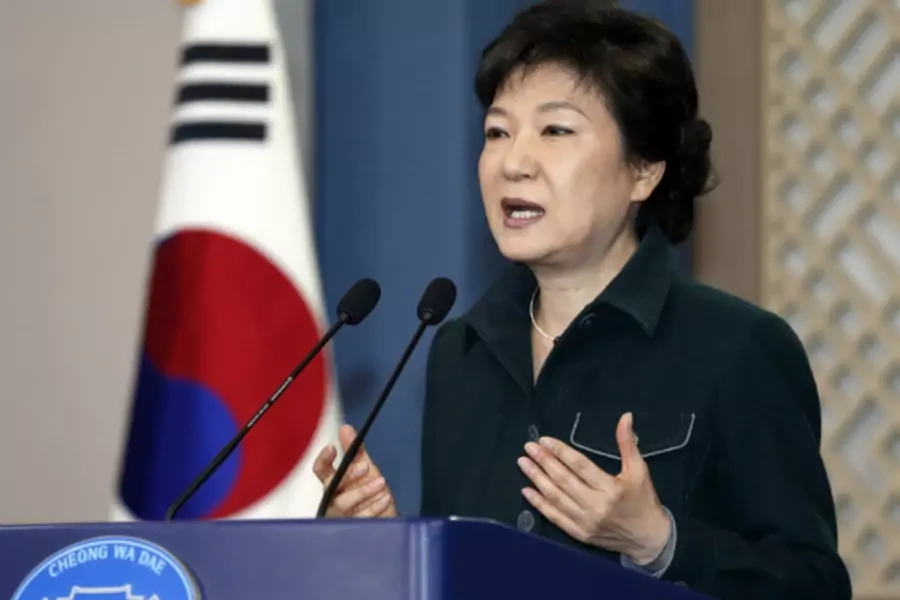More on:
In the first month since Park Geun-hye’s inauguration as South Korea’s first woman president, she faced an external security environment that she characterized the day after her election as “grave.” In addition, her administration has gotten off to a slow start due to unexpected internal constraints associated with a government reorganization plan that has been hung up in South Korea’s National Assembly. CFR’s Program on U.S.-Korea Policy is featuring two parallel essays by prominent South Korean scholars that provide deeper analysis of the internal and external challenges Park faces as president.
Park In-hwi of Ewha Women’s University provides an important explanation of changes in South Korea’s National Assembly that were intended to promote bipartisanship but may instead result in administrative gridlock. Legislative wrangling over Park’s government reorganization plan tied the hands of the government for almost a month following Park’s inauguration. The delayed passage of this plan combined with her administration’s own failures to adequately vet candidate selections for top administration posts has weakened Park’s popularity and lowered public expectations for her political leadership. Another worrisome factor that might constrain Park’s leadership is the apparently deep political disaffection with Park among South Korea’s younger generation. If a political issue emerges to turn apathy into opposition, there is a real possibility that street demonstrations similar to those that occurred in the early days of the Lee Myung-Bak administration could further hamper Park’s ability to get things done.
The internal constraints on Park’s exercise of presidential power pale in comparison with Seoul National University professor Chung Jae Ho’s observation that South Korea remains “more of a dependent than an independent variable of international politics.” This fact makes Park’s management of relations with China and Japan, respectively, particularly challenging, not to mention the blistering rhetorical challenges posed by North Korea, which have clearly constrained Park’s ability to follow through on pledges of greater engagement with Pyongyang. All of these issues will be on the agenda for Park’s first official meeting with President Obama in May, and they make it all the more important that both sides build on the strong foundation for alliance cooperation going forward.
More on:
 Online Store
Online Store
